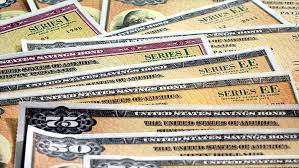10-year Treasury yield spikes, spooking the stock market

Here we go again: Treasury yields are spiking, and unsettling the stock market, too.
Concerns about higher inflation caused an investor exodus from government bonds on Tuesday. Heavy selling drove the 10-year Treasury yield to 3.067%, the highest since July 2011.
The 10-year yield helps determine how much it costs to borrow money, including mortgages, car loans and credit card rates.
The bond market sell-off began after the government said retail sales grew at a healthy pace in April, signaling the economy started the second quarter on a positive note. Relatively weak retail sales in February and March were revised higher, another sign of firmer inflation.
Higher bond rates are acting as a brake on the rising stock market. The Dow dropped about 250 points, or 1%, after having rallied eight straight days to the highest level in nearly two months.
Stocks that are sensitive to interest rates took a hit on Tuesday as investors braced for higher borrowing costs. The real estate, telecom and utilities sectors all dropped about 1%.
“This is absolutely a critical level to blow through. It makes sense that stocks are selling off,” said Kristina Hooper, global market strategist at Invesco.
Guy LeBas, chief fixed income strategist at Janney Capital, said that rates could go even higher, at least in the short run.
“We’ve got thin air up to about 3.2%,” LeBas said.
Although rates remain relatively low, the speed of the move spooked some investors. The 10-year Treasury started the day at just 2.99%. And as recently as September, it was just above 2%.
Related: Oil prices: How high before Wall Street freaks out?
Treasuries have come under selling pressure this year because of concerns that faster inflation will force the Federal Reserve to raise interest rates. A rapid rise of Treasury rates in late January and February caught investors off guard, causing stocks to tank.
Years of low yields on ultra-safe government bonds sent cash pouring into risky stocks, inflating their value. The reverse trend has slowed stocks down this year.
Inflation, which has been mysteriously low for years, has accelerated in recent months. Businesses are complaining about higher costs on everything from raw materials to trucking. Historically low unemployment suggests wages could finally pick up.
Households and businesses are also bracing for more expensive energy costs because of higher oil and gasoline prices.
At a minimum, firmer inflation suggests the Fed will continue to hike rates and shrink its massive balance sheet. If inflation were to accelerate much beyond 2%, the Fed could have to raise rates more aggressively.
Bond jitters have also been driven by signs of faster economic growth and Washington’s soaring borrowing needs. President Trump’s tax cuts, along with bipartisan spending increases, are forcing the federal government to sell tons of Treasuries at a time when the Fed is unloading them, too.

